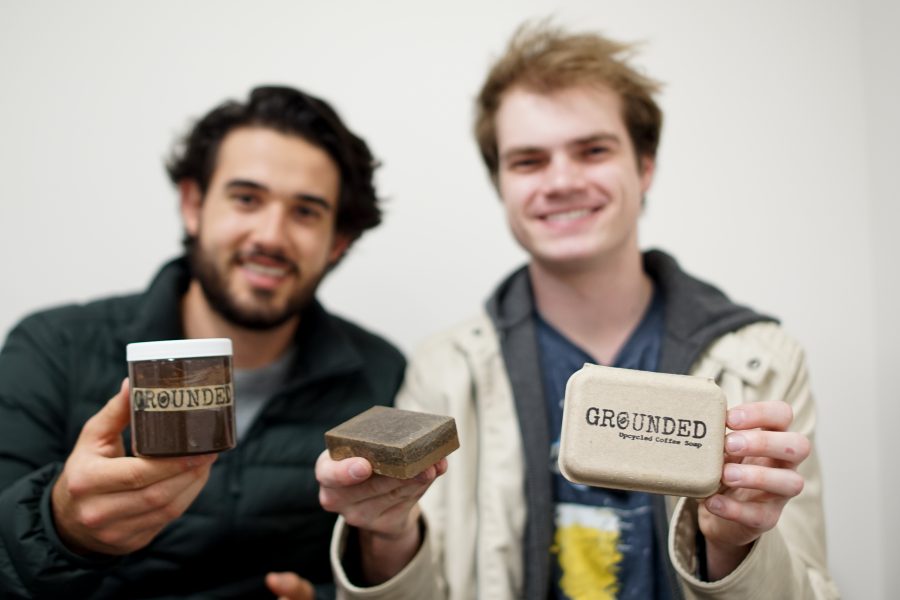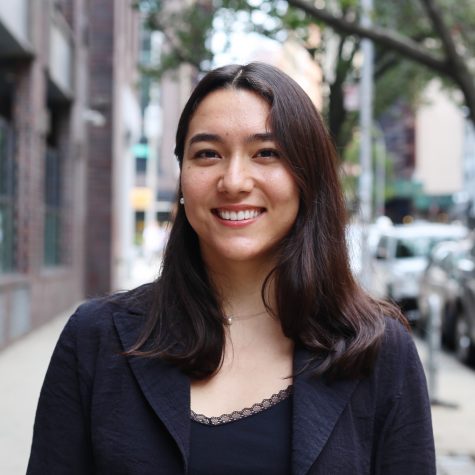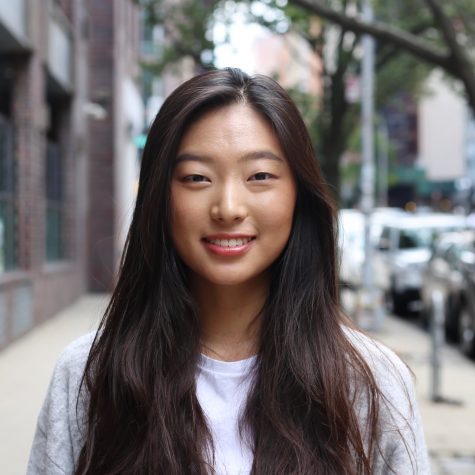Over 11 million tons of coffee are produced annually around the world, the vast majority of which ends up in landfills. Gallatin senior Parker Reposa and Stern junior Drew Enyedi are co-founders of Grounded, a company that upcycles coffee grounds into cosmetic products in an effort to minimize this enormous amount of waste.
They partner with local coffee shops looking to rethink their practices around organic waste and use their spent grounds to create soap bars. So far they have three partners: Think Coffee, Ancolie and Urban Backyard. All of their products are available to purchase online and in store at their partnering locations.
Reposa and Enyedi first met in their Social Entrepreneurship class in 2017, where they were charged with the heavy task of coming up with a sustainable business solution to a global crisis.
“In the beginning, we had a very different idea,” Reposa said. “We thought we would address the overall waste problem by starting a socially progressive waste management company — one that excels in organic collection and composting.”
However, entering the waste management business was simply too expensive. They racked their brains for something that they were uniquely able to provide rather than trying to single-handedly solve one of the world’s biggest waste crises — and they came up with Grounded.
“We were like, ‘Let’s start a brand that makes it very core to our mission to be creating social impact around reducing organic waste,’” Reposa said. “And then we decided to focus in on the coffee industry first.”
Enyedi is majoring in Finance and Sustainable Business and Reposa is concentrating in ‘Regenerative Business and Biomimetic Design.’ Using their experience, they reimagine waste by taking organic byproducts — specifically coffee grounds — and turning them into consumer products.
Coffee grounds are an exfoliant alternative to the now-banned microbeads, or small plastic particles often put in personal care items to exfoliate the skin but end up in the oceans after being rinsed off in the sink or shower. Not only are spent coffee grounds biodegradable, but they also have beauty benefits.
“Coffee grounds just have a lot of really beneficial properties for cosmetic products,” Enyedi said. “It’s a natural exfoliant.”
However, Reposa and Enyedi aren’t the only ones to realize these natural benefits.
Other companies, such as Lush, have their own coffee-incorporated products, but Reposa and Enyedi are selling both beauty and sustainability. Reposa pointed this out while describing the prototype for one of their new products, a coffee scrub mask.
“I think the soap is great,” Cocoburg marketing manager Meg Caccavale said. Cocoburg is a fellow upcycling company that repurposes coconut meat to make vegan jerky. Caccavale met Reposa at a food and technology event where they both presented their respective company’s products.
“It’s a product that’s helping fight food waste,” Caccavale said. “Also, it’s an all-natural product, so doesn’t make me feel like I’m putting harmful chemicals on my body.”
Their soap is 100% organic and packaged in post-consumer, recycled packaging. But the creation process was a difficult one for Reposa and Enyedi.
“We’re not chemists, and we’re not soap people,” Reposa said. “We don’t have a cosmetic background or anything.”
Only after multiple tests and iterations were they able to create a fine-tuned product that they were ready to put on the market.
Each bar of soap consists of eight simple ingredients: coffee grounds, coconut oil, palm oil, safflower oil, glycerin (kosher, of vegetable origin), goat’s milk, water and sorbitol for moisturizer.
“It is fairly simple but tackles a pretty huge issue when we think about how much coffee is consumed daily,” Gallatin senior and EarthMatters Co-President Lilly Peale Ferris said. “I can’t imagine how many coffee grounds are thrown away each day and the idea of using a waste product, not only to reduce that waste, but also generate another product, the soap, in a sustainable, low-impact way, is awesome.”
According to a 2014 Vice article, “In Today’s Landfills, Food Is Embalmed for Decades at a Time,” most landfills are covered, which deprives oxygen from reaching organic matter and prevents decomposition.
Grounded works to alleviate this problem, diverting coffee grounds to waterways, where they naturally decompose and reduce methane emissions.
“I honestly don’t know all the potential negative impacts of this,” Ferris said. “But I can imagine it is less harmful than the alternative of the grounds being sent to landfill, because the excess of landfill bound waste is enormous in this country.”
Reposa acknowledges that it is a system with its caveats. The ideal situation would be that the grounds are returned to their natural cycle, which doesn’t happen 100% of the time when they are washed down the drain. The bottom line is that it is better than the alternative: the grounds ending up trapped in a plastic bag and releasing a substantial amount of methane.
One of the dangers of sustainable branding is falling into a profit-driven mindset, where the goal of the company is selling the idea of sustainability for profit rather than doing good for the environment.
“Sustainability is becoming more trendy,” Ferris said. “Because of this, I think businesses that brand themselves as sustainable aren’t always as ethical or environmentally responsible as they claim but want to appeal to the trend.”
Sustainability is at the center of Grounded’s mission. However, when Reposa and Enyedi first created their company, their goal was not financially motivated. It started with their environmentally conscious project in their social entrepreneurship class.
“The final project is basically a business plan,” Enyedi said. “So you don’t necessarily need to have a product or anything like that. Definitely didn’t need a website. I think we were so excited about it, that we did have all those things by the end of the class, and that excitement just sort of drove Grounded into actually becoming a real company.”
To get an A, they created a business model. They decided to continue to develop their product after the class ended and eventually launched Grounded as a full fledged company later that year.
Will lathering our bodies with recycled coffee grounds save the planet? No. But it’s a start.
Grounded allows people to slowly incorporate eco-friendly practices into their lives without having to make any sacrifices.
“I think both of us would like to see a future where there’s a lot less waste, especially in the organic category, and maybe even a future of zero waste in our lifetime,” Reposa said. “Coffee grounds is just one waste stream.”
Though it may seem like a miniscule solution, change cannot be forced, only inspired. But for now, we can take on sustainability slowly, one cup of coffee at a time.
A version of this article appeared in the Monday, April 8, 2019, print edition. Email Arin Garland at [email protected].

























































































































































